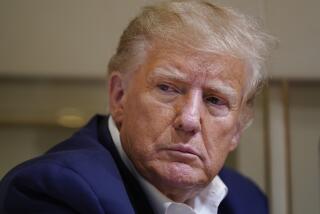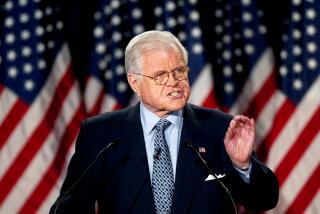Records Tell of Kennedy Compromise in â62 Crisis
BOSTON â President John F. Kennedy overruled his advisers and decided to resolve the Cuban missile crisis through diplomacy rather than an air strike against the missile sites or invasion of the island, according to documents being made public this week.
The documents, to be released Wednesday by the Kennedy presidential library in Boston, are transcripts from meetings of the Executive Committee of the National Security Council on Oct. 27, 1962, the day before Soviet leader Nikita S. Khrushchev announced that he would remove the missiles from Cuba.
The documents represent the latest information to surface about the crisis, which brought the world to the brink of nuclear war. Earlier this month at a Harvard University conference, a Soviet expert on the situation said that the Soviet Union installed the missiles out of fear that the United States was preparing to invade Cuba.
The presidential library documents show that Kennedy wanted to resolve the standoff through a diplomatic trade--he would promise to remove U.S. missiles from Turkey in exchange for the Soviets removing their missiles from Cuba.
The Boston Sunday Globe reported that those who have seen the transcripts say they disprove the widely held belief that Kennedy prevailed by being tough and uncompromising. In fact, compromise was the key to the solution, according to the documents.
The newspaper also said the documents are said to disprove accounts that Kennedy and his advisers solved the crisis by consensus, and instead show that the President overruled the majority of those advising.
Khrushchev eventually agreed to pull the missiles out in exchange for an American pledge not to invade Cuba and to withdraw obsolete missiles from sites in Turkey and Italy.
In his book about the crisis, âThirteen Days,â Robert F. Kennedy related how he told Soviet Ambassador Anatoly F. Dobrynin that the President wanted the U.S. missiles removed from Turkey and would order them dismantled within four or five months.
The documents show that Robert Kennedy, acting on behalf of his brother, promised Dobrynin the missiles would be removed from Turkey but insisted that they not be mentioned in any public statements about the resolution of the Cuban affair.
More to Read
Sign up for Essential California
The most important California stories and recommendations in your inbox every morning.
You may occasionally receive promotional content from the Los Angeles Times.










